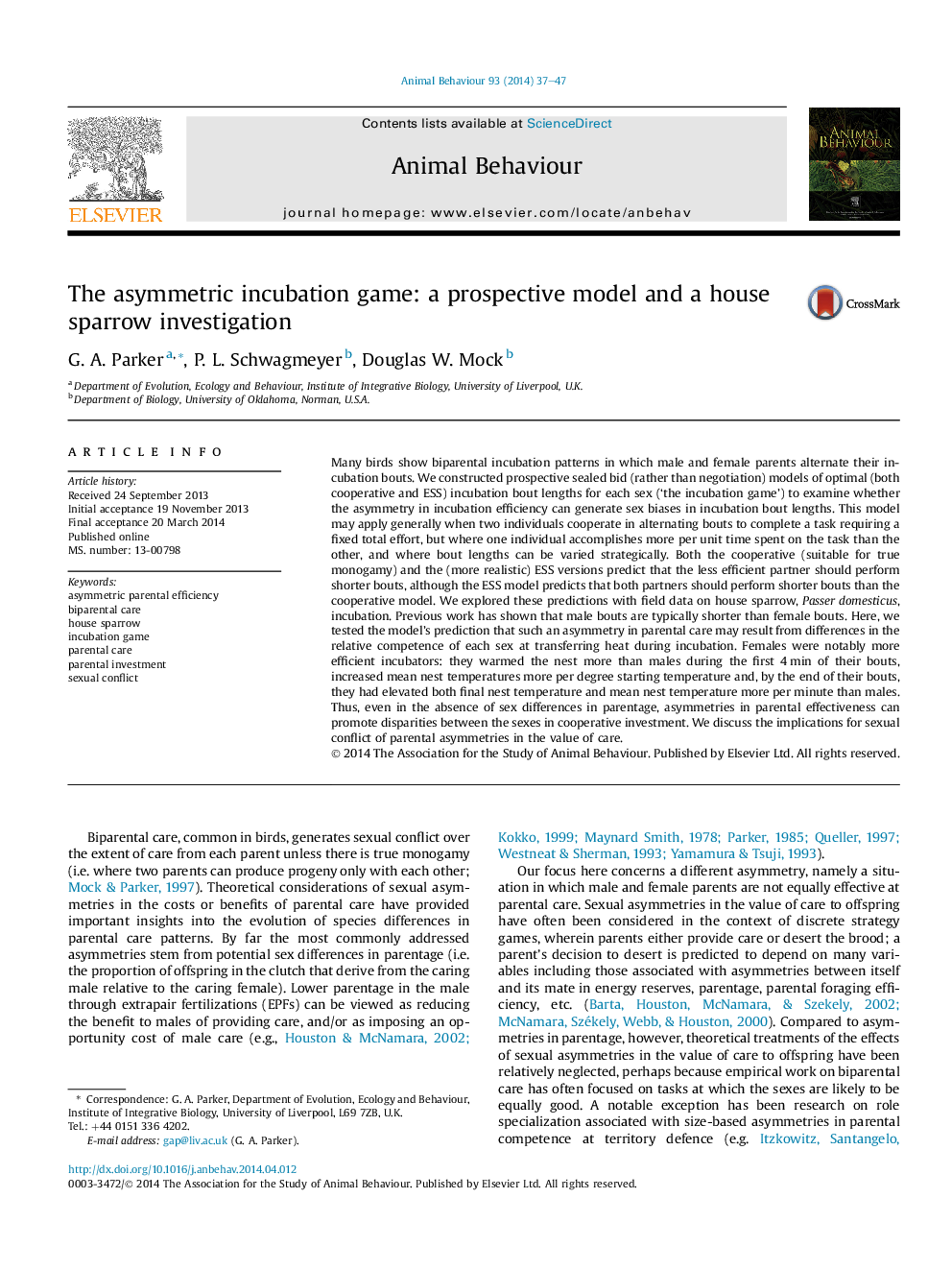| کد مقاله | کد نشریه | سال انتشار | مقاله انگلیسی | نسخه تمام متن |
|---|---|---|---|---|
| 8490422 | 1552235 | 2014 | 11 صفحه PDF | دانلود رایگان |
عنوان انگلیسی مقاله ISI
The asymmetric incubation game: a prospective model and a house sparrow investigation
ترجمه فارسی عنوان
بازی انکوباسیون نامتقارن: یک مدل آینده نگر و یک تحقیق درباره جنگل خانه
دانلود مقاله + سفارش ترجمه
دانلود مقاله ISI انگلیسی
رایگان برای ایرانیان
کلمات کلیدی
بازده والدین نامتقارن، مراقبت دوطرفه، جلبک خانه، بازی انکوباسیون مراقبت از پدر و مادر، سرمایه گذاری والدین، درگیری جنسی
موضوعات مرتبط
علوم زیستی و بیوفناوری
علوم کشاورزی و بیولوژیک
علوم دامی و جانورشناسی
چکیده انگلیسی
Many birds show biparental incubation patterns in which male and female parents alternate their incubation bouts. We constructed prospective sealed bid (rather than negotiation) models of optimal (both cooperative and ESS) incubation bout lengths for each sex ('the incubation game') to examine whether the asymmetry in incubation efficiency can generate sex biases in incubation bout lengths. This model may apply generally when two individuals cooperate in alternating bouts to complete a task requiring a fixed total effort, but where one individual accomplishes more per unit time spent on the task than the other, and where bout lengths can be varied strategically. Both the cooperative (suitable for true monogamy) and the (more realistic) ESS versions predict that the less efficient partner should perform shorter bouts, although the ESS model predicts that both partners should perform shorter bouts than the cooperative model. We explored these predictions with field data on house sparrow, Passer domesticus, incubation. Previous work has shown that male bouts are typically shorter than female bouts. Here, we tested the model's prediction that such an asymmetry in parental care may result from differences in the relative competence of each sex at transferring heat during incubation. Females were notably more efficient incubators: they warmed the nest more than males during the first 4Â min of their bouts, increased mean nest temperatures more per degree starting temperature and, by the end of their bouts, they had elevated both final nest temperature and mean nest temperature more per minute than males. Thus, even in the absence of sex differences in parentage, asymmetries in parental effectiveness can promote disparities between the sexes in cooperative investment. We discuss the implications for sexual conflict of parental asymmetries in the value of care.
ناشر
Database: Elsevier - ScienceDirect (ساینس دایرکت)
Journal: Animal Behaviour - Volume 93, July 2014, Pages 37-47
Journal: Animal Behaviour - Volume 93, July 2014, Pages 37-47
نویسندگان
G.A. Parker, P.L. Schwagmeyer, Douglas W. Mock,
